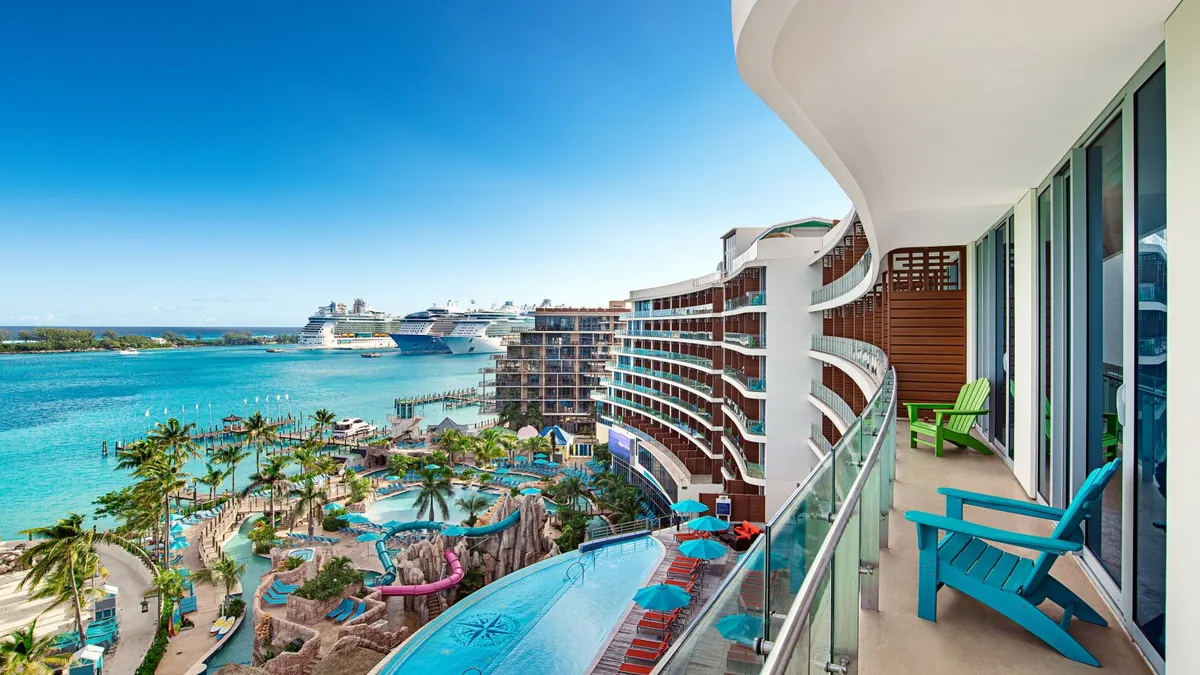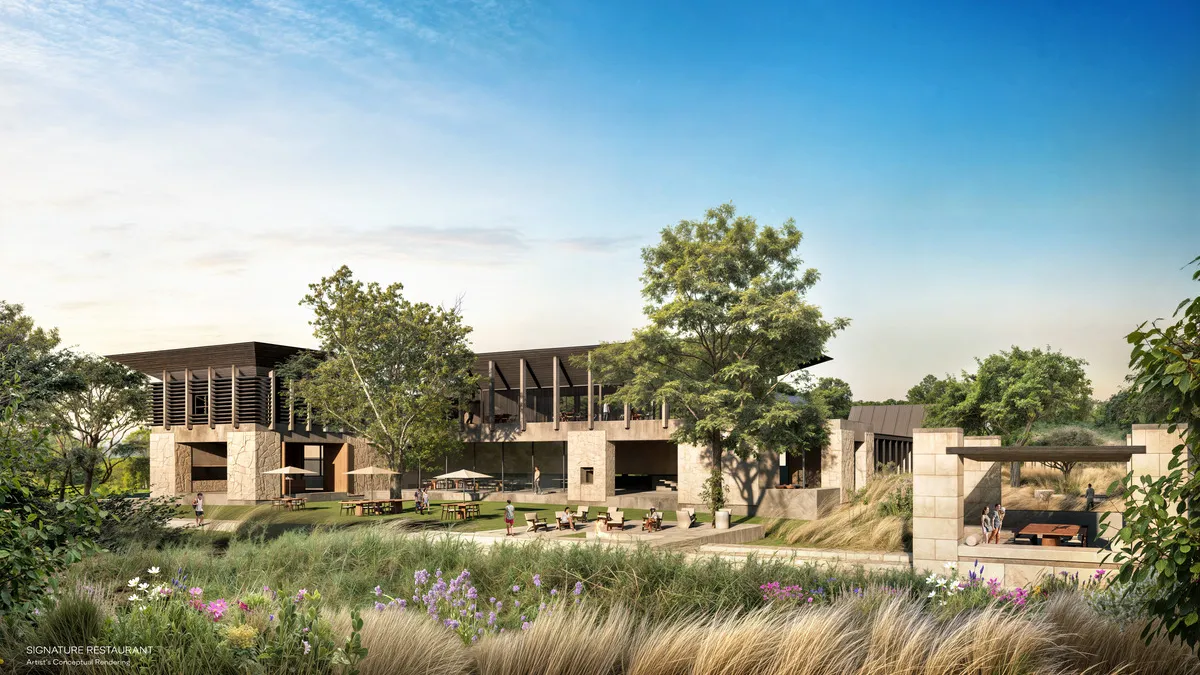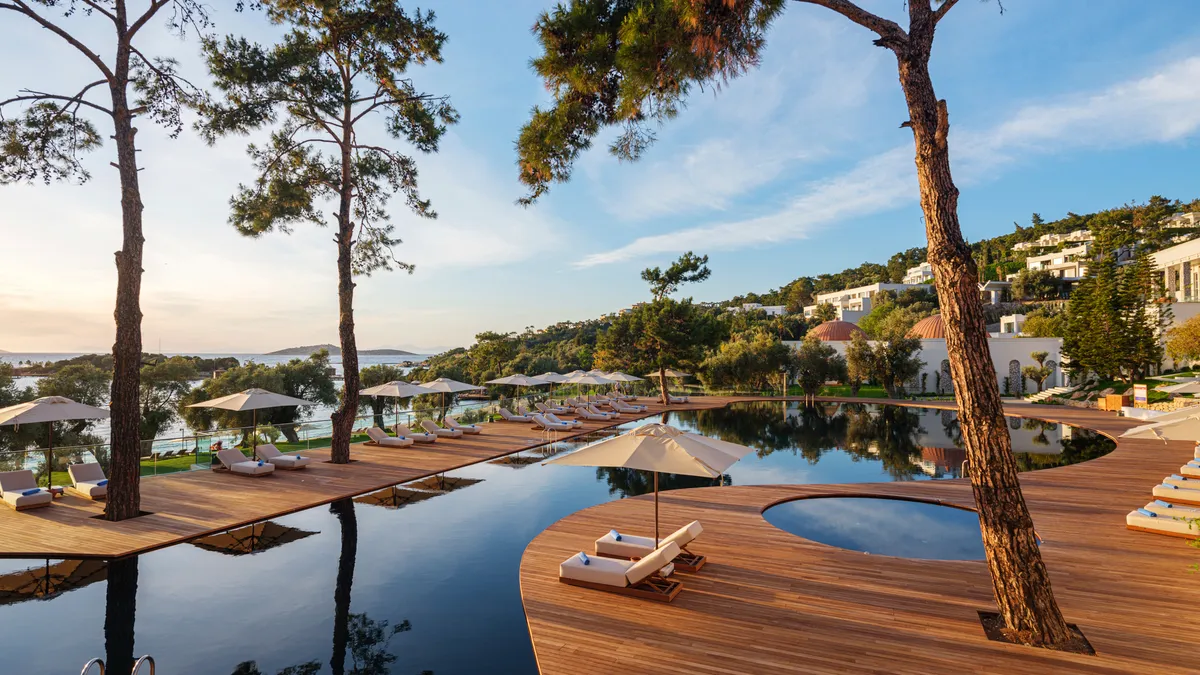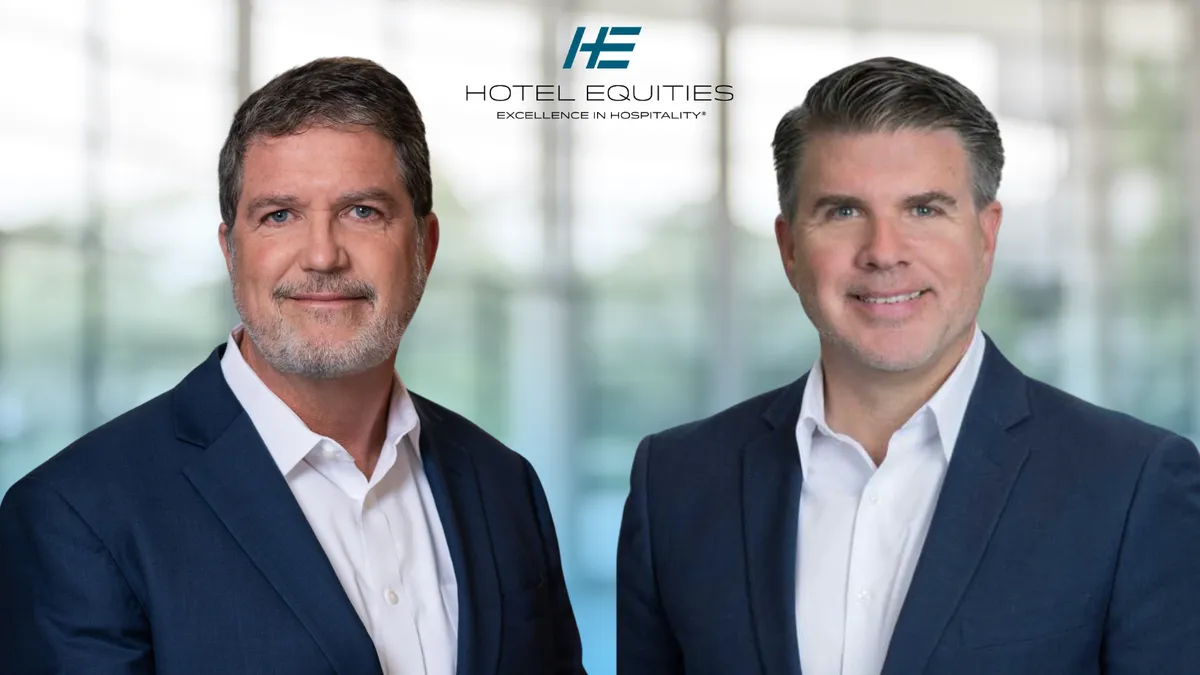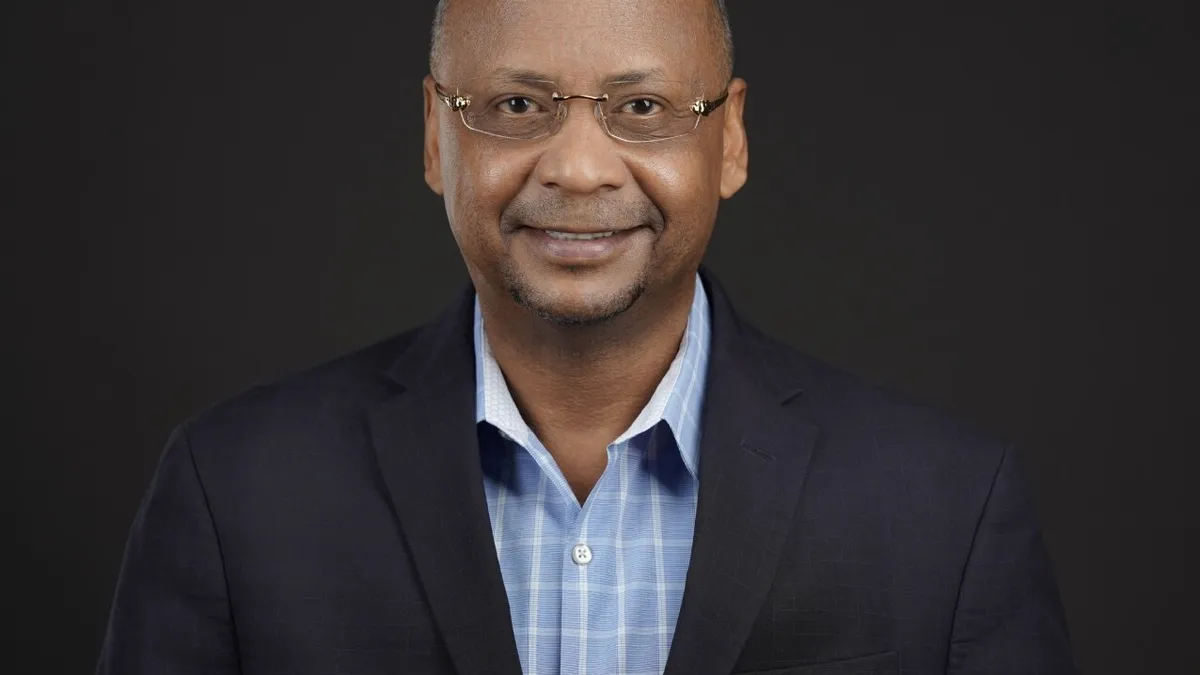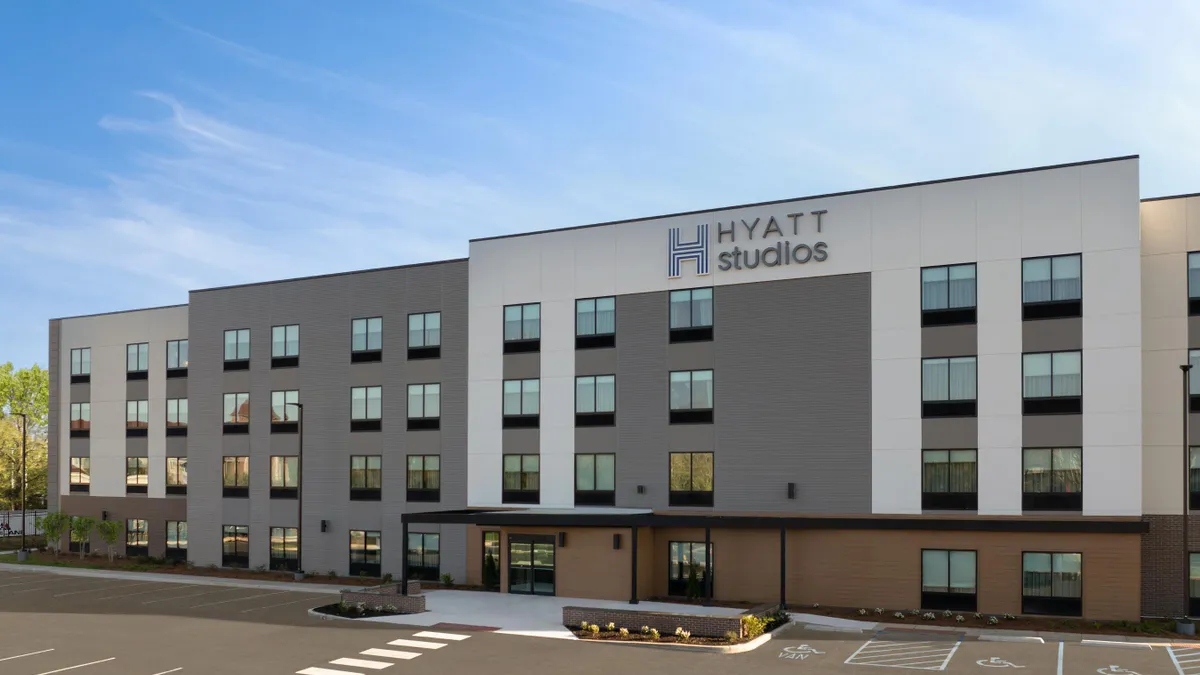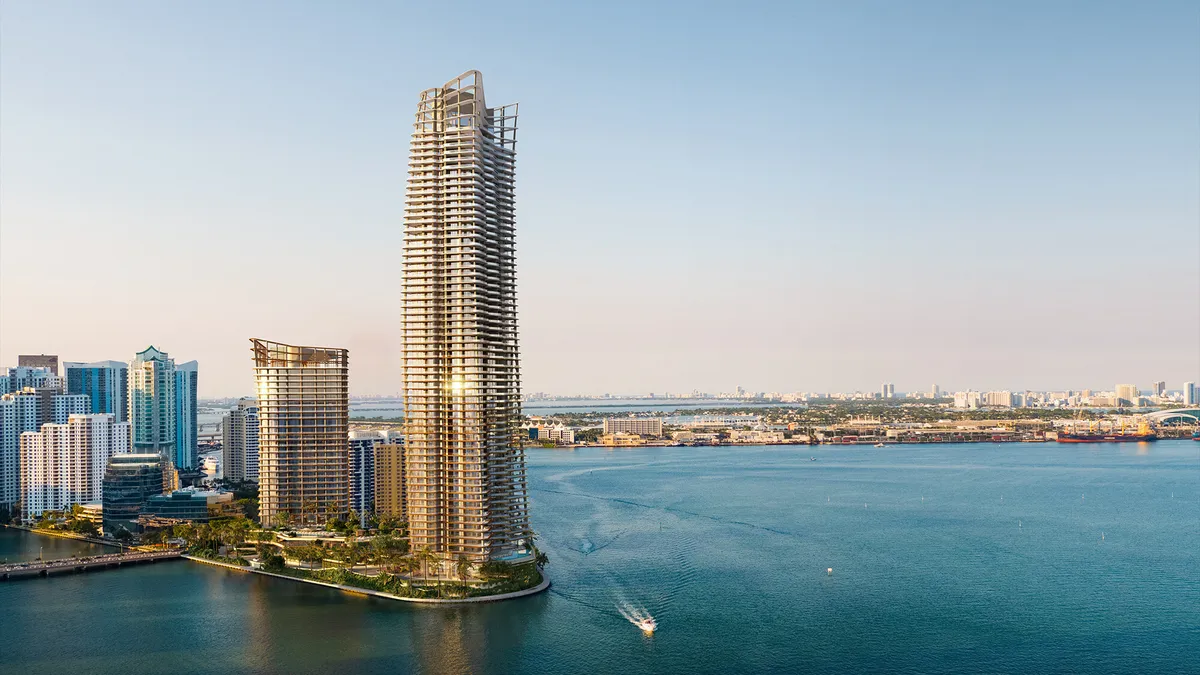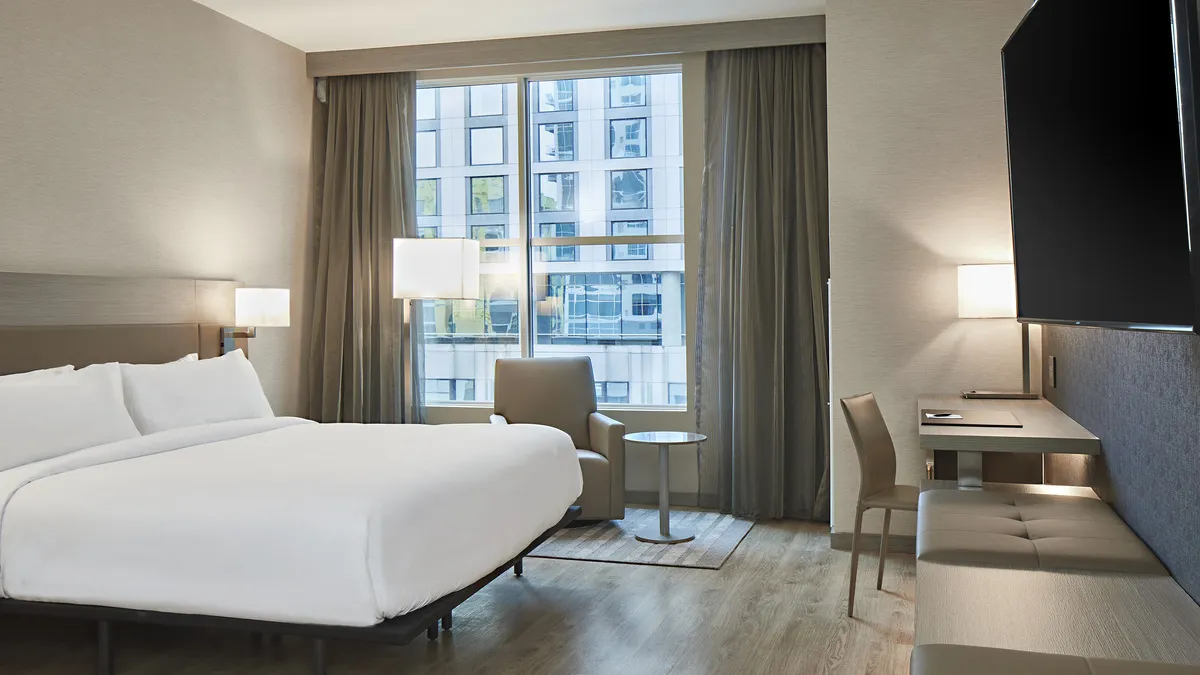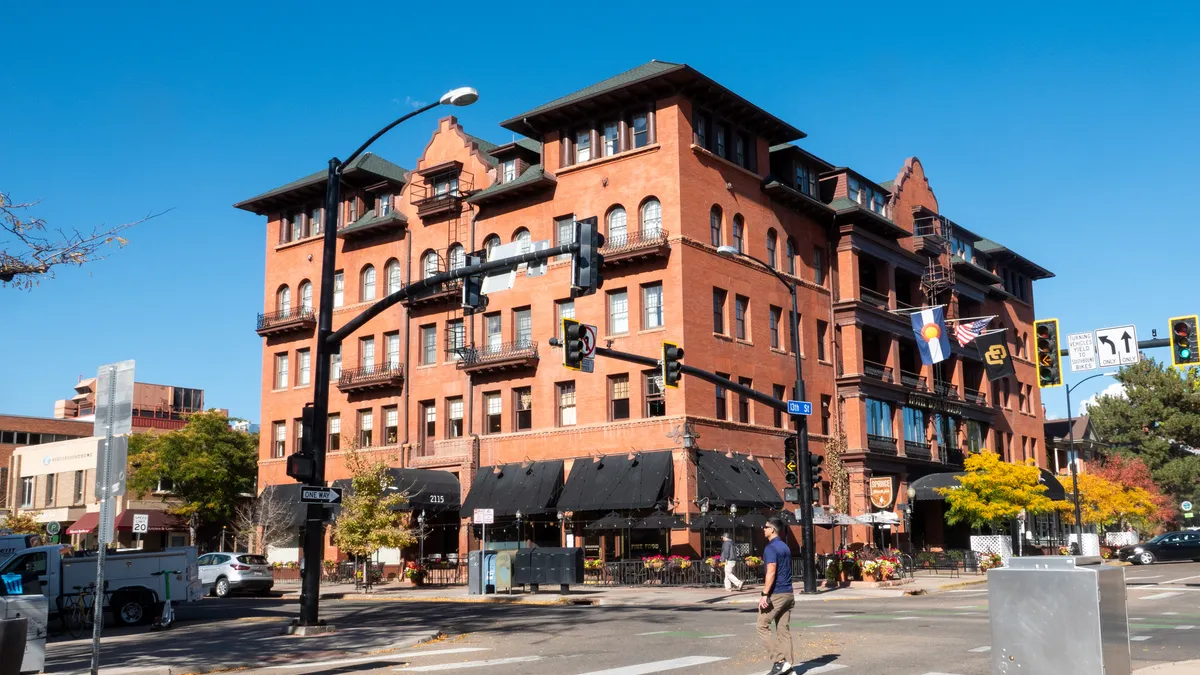Margaritaville Hotels & Resorts may be known for its laidback, no-shoes lifestyle, but when it comes to hotel development, the company is all business.
In recent months, the resort brand — which counts 20 lodging destinations across the U.S. and Caribbean — opened properties in Fort Myers, Florida, and South Lake Tahoe, California; announced deals to develop two more resorts in Texas and another in Kansas City; and is preparing to open its first resort in Cape Cod, Massachusetts, this summer.
Meanwhile, the brand’s offerings have come a long way since its iconic founder, “Margaritaville” singer Jimmy Buffett, launched his first restaurant in Key West, Florida, in 1985 and his first hotel in 2010. There’s the Compass Hotels by Margaritaville brand, which offers smaller, more boutique properties in urban and college town markets; Camp Margaritaville, a brand of RV resorts; all-inclusives in the Caribbean and Mexico; and the luxury brand St. Somewhere Resorts.
Though Buffett passed away last year, the resorts are more popular than ever, according to Jim Wiseman, the company’s president of development. And according to The New York Times, the company had $2.2 billion in gross annual revenue in 2022. “There's a lot going on for us,” Wiseman said.
Hotel Dive sat down with Wiseman to discuss Margaritaville’s expansion plans, what it means to “get” the brand and the company’s play to attract younger guests.
This interview has been edited for clarity and brevity.
HOTEL DIVE: Margaritaville seems to be expanding to a lot of new locations. How do you choose places to bring the brand to?
JIM WISEMAN: The good news for us is we have a real lifestyle, so we can go to a lot of different places. Obviously we've got great stuff in Florida, but Texas, Kansas City, Lake Tahoe — we create destinations wherever we are. So what we really look for is a great partner or owner that gets the brand, that understands it and then [we] can really put it anywhere to create that Margaritaville vibe.
And when you say a partner or owner who ‘gets’ the brand, what aspects of the brand do you think it's most important for them to connect with?
It's the fun aspect of it. It's not, “I’m going to build 50 Margaritaville hotels,” but more “I want to have one real cool one in my portfolio.”
It's hard to explain what 'getting the brand' means, but I always tell owners, 'If you embrace the brand, it will embrace you.'

Jim Wiseman
president of development, Margaritaville
In Pigeon Forge, [in the Tennessee] Gatlinburg area, we've got a group there that owns four hotels. So we do have a lot of multiple [property] owners, but those are the ones that really get the brand. It's hard to explain what “getting the brand” means, but I always tell owners, “If you embrace the brand, it will embrace you.” If you throw up something and stick a sign on it, that doesn't work.
Lake Tahoe is an interesting example, because it’s your first in a ski destination, whereas people tend to associate Margaritaville with beaches. How do you adapt the brand to diverse places?
Skiing is still fun! Our whole brand is having fun, and you can do that in a lot of different ways in a lot of different places. [As for] adaptation, we have a great design firm that’s worked for us for 25 years. Typically, about 30% of the design is going to be local. So if you go to Gatlinburg, you're going to see a fireplace in the room with stone. It’s not all beach colors. We adapt to where we are.
Tell us about the resorts that are currently in development.
Texas is a big area for us. We've opened at Lake Conroe, and that's doing very, very well, and we’re going to open in Galveston as well [and] Lake Texoma. You know, the lake is the new beach for a lot of people.
A lot of what we do is very organic. So we have owners come to us, especially with conversions, and say, “Hey, I own this hotel. We think it’d be cool as a Margaritaville.” And basically that’s what happened with Cape Cod.
We don't have to create a lifestyle; we have a lifestyle. It's a heavy lift to try to create one.

Jim Wiseman
president of development, Margaritaville
What percent of your development comes from conversions versus ground-up builds? And what kind of resorts are being converted?
It’s fifty-fifty. There are more Compass [by Margaritaville] conversions than not because it's easy to convert a Courtyard by Marriott or Hilton Garden Inn to a Compass, so that's a big focus for us.
Lifestyle hotels are having a moment, with major hotel groups like Hilton and IHG launching and expanding lifestyle brands. Do you see Margaritaville resorts benefitting at all from the broader thirst for lifestyle-oriented accommodations?
We had a lifestyle 40 years ago when [Buffett] wrote the song. So we don't have to create a lifestyle; we have a lifestyle. It's a heavy lift to try to create one, and people spend a lot of money trying to do it. What does the Andaz lifestyle mean? What does the Tempo lifestyle mean? It's very difficult to make up a lifestyle. We've got an authentic brand that has been around for a long time.
How has that brand evolved over the years?
Obviously we've got a lot more locations and a lot more traffic. In the beginning we may have been a novelty type of thing, but now we're mainstream.
The group business has been a big surprise. When we did our flagship in Hollywood, Florida, Starwood Capital did it, and they were like, “We're concerned about the group business.” Well, we’re running 30% groups now. People love to have their groups at Margaritaville.
Speaking of Margaritaville's guests, the brand is very popular among the 55-and-up crowd. Do you have any plans in the works to attract younger guests?
Yeah, we’re mostly older currently. We’ve come out with [RV resort brand] Camp Margaritaville, which is not just RVs — it’s a real destination with cabins and cottages, and that is a big draw for millennials. It's a deconstructed hotel, basically.
We’ve also got something called Margaritaville University, where we are in a bunch of campuses and give away swag. So we're very cognizant of it being a wide-reaching brand, and if you look at the research, [our audience is] way broader than most people think.
How do you see Margaritaville’s non-resort businesses, like the living community Latitudes, complementing the company’s hospitality strategy?
I was just in Houston, where we're looking to do a 55-and-over community, and it's close to Lake Conroe. The synergy’s there. Everybody that lives there is going to want to go to Lake Conroe, and people that go to the Lake Conroe resort are going to say, “Hey, I could retire and move down the street.” I think we will see more of that. If you have a resort that does very well, then that makes sense that another type of product could work well in the same market.
Beyond the resort developments we’ve talked about, what else is in store for Margaritaville?
You’ll be seeing a lot more Camp Margaritaville destinations. As a development guy, I'm getting more and more calls about that. It’s in its infancy, and while we'll never be Marriott or Hilton, we certainly think we can control the camp destination market.



